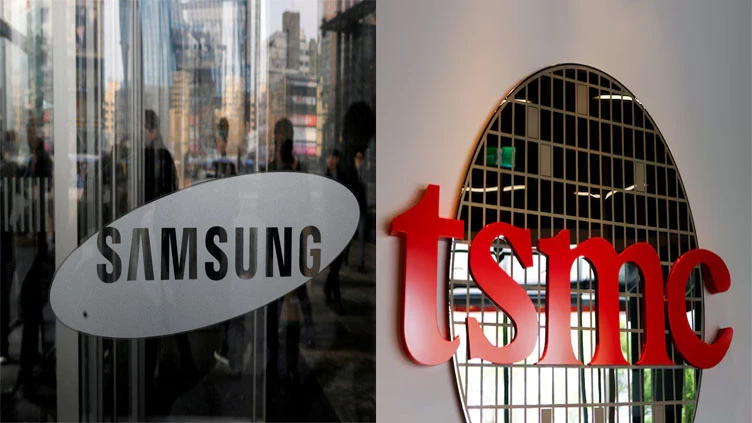The escalating trade tensions between the United States and China are having a profound impact on the semiconductor industry, particularly for companies like Samsung and Taiwan Semiconductor Manufacturing Company (TSMC). Recently, the U.S. government took a significant step by ordering TSMC to halt shipments of advanced 7nm chips and below to international buyers, which includes Chinese companies. This move follows a similar directive aimed at Samsung, a rival in the foundry business, and adds more pressure to an already strained sector.
The order has sent shockwaves through the global semiconductor supply chain. While TSMC's decision to suspend shipments to Chinese customers had already disrupted the market, Samsung’s compliance with the same directive has only intensified the situation. Historically, Chinese companies that were unable to secure advanced chips from TSMC relied on Samsung as an alternative. With that option now effectively removed, these companies face limited choices moving forward, complicating their production capabilities.
This move couldn’t have come at a worse time for Samsung. The company is already grappling with challenges in its foundry business, particularly in scaling its advanced 3nm process technology. Despite significant investments in research and development, Samsung has struggled to achieve high yields in its first-generation 3nm Gate-All-Around (GAA) process, which has led to a lack of major clients for its most advanced nodes. As a result, local players that once favored Samsung's older nodes have increasingly turned to TSMC, further diminishing Samsung’s competitive edge.
While the sanctions on Samsung and TSMC may appear to benefit U.S. interests by limiting Chinese access to advanced semiconductor technology, the situation is more complicated. In response to these sanctions, Chinese companies are now being pushed to consider alternatives, with China’s largest semiconductor manufacturer, SMIC, emerging as a potential supplier. However, SMIC's reliance on older DUV (Deep Ultraviolet) technology, as opposed to the more advanced EUV (Extreme Ultraviolet) equipment, means that it is limited in its ability to produce chips at scale. Consequently, SMIC can only cater to a select few clients, with Huawei being one of the primary beneficiaries of its 7nm node technology.
Although SMIC has made strides in developing 5nm technology, its reliance on less advanced equipment and limited production capacity means it cannot fully replace TSMC or Samsung in meeting the demands of the Chinese market. As a result, Chinese companies are now facing significant challenges in sourcing advanced semiconductor chips, which are crucial for industries ranging from consumer electronics to automotive manufacturing.
On a more positive note, the sanctions could serve as a wake-up call for China to accelerate its efforts in building a self-sufficient semiconductor industry. While it will take years to fully reduce China’s dependence on foreign suppliers, the current climate could drive increased investment into domestic research and development. China’s goal of achieving semiconductor independence may seem ambitious, but the pressure from these trade sanctions could act as the catalyst needed to initiate significant advancements in domestic chip production.
In the long term, the trade sanctions imposed by the U.S. may not only impact the balance of power in the semiconductor market but could also accelerate China's push to become more self-reliant in this critical sector. Though it will take time for China to develop the capabilities to match TSMC and Samsung, the current state of play is forcing Chinese companies to adapt quickly or risk falling behind in a rapidly evolving industry.
WCCFTECH
Read More






 Saturday, 31-01-26
Saturday, 31-01-26







